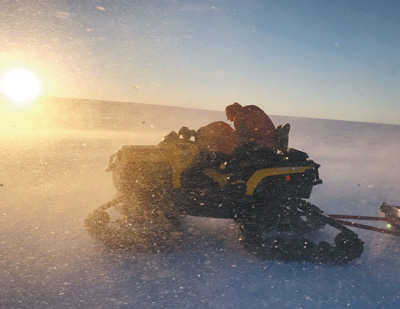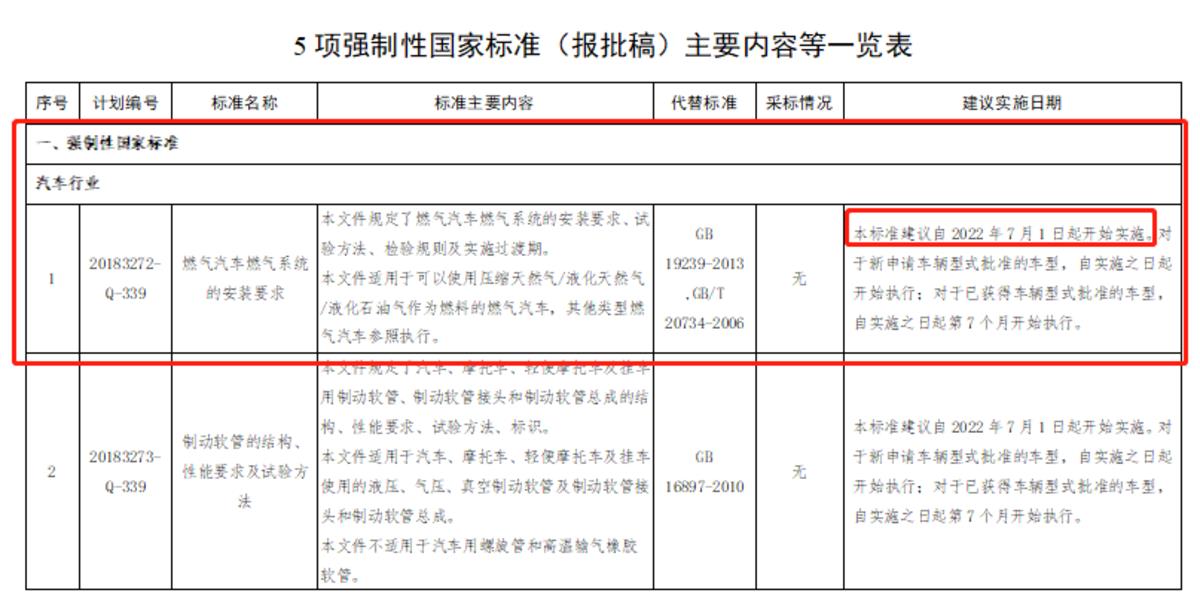Go to the forbidden zone of life, climb a new height of life, and take a polar scientific examination to bloom a different kind of youth.

When the fixed-wing aircraft is carrying out the flight scientific research mission, Cheng Xuyu takes a snowmobile for safety protection. Zhu Biao photo (people’s vision)
Core reading
From ignorance to the construction of several research stations, from the absence of a professional scientific research ship to the three-dimensional investigation of land, sea and air, China is moving from a big country to a powerful country, and generations of China scientific researchers are blooming in the polar regions.
Some people can’t welcome the birth of their children, and some people can’t see their seriously ill father for the last time, so they can only bury their deep thoughts and guilt in their hearts … … But it is with the selfless dedication of groups of people that Antarctic scientific research has achieved today.
When the assault boat broke through the sea ice floes and landed in king george island, South Shetland Islands, Antarctica, the wind and snow were fair, and the five or six winds blew dry snow on the face, making my face dull and painful.
In this storm, I saw the five-star red flag — — China Antarctic Great Wall Station is here. On February 20, 1985, it was also such a snowy day that the Great Wall Station was inaugurated, marking a new stage of China’s Antarctic scientific investigation.
Over the past 30 years, from ignorance to the establishment of several research stations, from the absence of a professional scientific research ship to the three-dimensional investigation by sea, land and air, China is moving from a big country in polar exploration to a powerful country. In this process, a group of China scientific examiners bravely broke into the forbidden area of life again and again, with their motherland and dreams in their hearts, and their youth blossomed in the polar regions … …
What’s it like to spend the winter at the Great Wall Station in Antarctica?
As soon as the assault boat landed, he met Guo Minquan. He braved the wind and snow to the seaside and used a simple device to measure the real-time temperature of seawater.
Guo Minquan, born in 1980s, is a wintering member of Great Wall Station. He comes from Fujian Ocean Forecasting Station and has been on the station for a whole year. Like another colleague, Gan Zhaojiang from the Meteorological Bureau of Yiyuan County, Shandong Province, he was recommended and selected at different levels before he got the chance to participate in the 35th Antarctic expedition in China.
The winter climate in Antarctica is harsh. Except for some long-term observation projects, most scientific research activities have stopped. Guo Minquan and Gan Zhaojiang are responsible for meteorological observation, which is one of the few projects that need continuous maintenance. The two of them observe and release meteorological information four times a day, at 2 am, 8 am, 2 pm and 8 pm, rain or shine. "This is an international sharing project, and the data we measured should be released to the World Meteorological Organization." Gan Zhaojiang said that, therefore, sustainability is a rigid requirement.
The lowest recorded temperature at Great Wall Station is minus 27.7 degrees Celsius, because it is not in the hinterland of Antarctic continent, and the temperature is not as extreme as expected. But what is "deadly" is the Antarctic wind. During their stay, the maximum wind force measured at Great Wall Station exceeded 12, and windy weather is a common occurrence. The biggest danger of a strong wind is temperature loss. The wind will take away the body’s heat quickly, and it can’t be exposed for too long.
Gan Zhaojiang comes from the old Yimeng Mountain area. He has an optimistic spirit about the strong winds in the Antarctic: "This wind will deceive people, and it will be strong for a while, so you have to carry it; When it suddenly becomes smaller, it will flash you, and people will stand unsteadily. " In addition to daily fixed temperature measurement, they also help some scientific research institutions to collect sample data, including precipitation, microbial species and other seven or eight projects, many of which have to be done outdoors.
Antarctica is a temple of science, and many scientific research projects are international cooperation. For example, they are cooperating with Uruguay to observe the distribution of fruit flies in Antarctica. Affected by human activities, exotic species have appeared in Antarctica in recent years, and collecting biological samples is one of the important tasks of scientific research.
The Antarctic summer is coming soon, scientists from all over the world will come one after another, and the scientific research projects will be much richer. In recent years, with the warming up of Antarctic topics and the booming Antarctic tourism, scientific research projects are also increasing, especially social science projects. In the past year, Great Wall Station has carried out 17 scientific research projects, including 5 natural science projects, 5 social science projects, 6 business surveys, and one popular science promotion.
"Antarctic is the last pure land of the earth, but this pure land has been affected by human activities. There has been a hole in the ozone layer, and tiny plastic particles have drifted to the South Pole with ocean currents. " When Guo Minquan talked about the significance of scientific research, he suddenly became very serious. "Without investigation, there is no right to speak. Better research is to have better policies and concepts to promote better protection and utilization."
Guo Minquan said frankly that what is a community of human destiny can be felt more in Antarctica. King george island is a famous Antarctic cultural community, and there are more than 20 observation stations and observation points on the island. Every summer, scientists from different countries, languages and skin colors come one after another, and they are active in this land together. The research stations of various countries visit each other like visiting relatives.
"They love coming to our station." Guo Minquan said that the Great Wall Station has complete scientific research facilities, many large-scale construction machinery and complete living facilities. During the long winter, the scientific research stations in neighboring countries will also create some opportunities for getting together, such as the Mid-winter Festival and the small "Olympic Games", where the scientific research team members will play some ice and snow sports together to add some interest to the boring life.
This year’s National Day is the 70th anniversary of the founding of New China. Because of the time difference, the station downloaded the video of the military parade and held a simple celebration ceremony, inviting scientists from various scientific research stations to watch it together. "We can feel a stronger sense of pride here. The stronger our motherland is, the more our polar scientific research will develop, and we will make greater contributions to the scientific and peaceful use of Antarctica and global climate governance!" Gan Zhaojiang said.
What’s the taste of ice cake and eggs that have been kept for a year?
Polar research institute of china, located in Shanghai, is the only scientific research and support business center in China that specializes in polar exploration. After 90, Cheng Xuyu worked in the Station Management Office of the Research Center.
In Cheng Xuyu’s eyes, the Antarctic has a touching beauty: "There is the most patient sculptor in nature. It uses snow and snow as a carving knife. After thousands of years of brewing, it engraves the exposed surface into a solemn work of art.. There are also the most creative painters in nature. Silent icebergs, elegant clouds and brilliant sunshine are combined by them to form amazing works. Listening attentively, you will find that there are many musicians in Antarctica, passionate when the wind is raging, soft and smart when the snow mountain melts, and bright rhythm when the sea ice rubs. "
Cheng Xuyu spoke as if he had never left that holy place. Although he is young, he has rich experience in polar scientific research — — He went to the South Pole three times to participate in the maiden voyage, experimental application and operational operation of China’s polar fixed-wing aircraft "Snow Eagle 601", mainly responsible for the operation guarantee and safety maintenance of the aircraft.
Recalling the story of "ice cake", Cheng Xuyu smiled happily.
That was on January 8, 2017, during the 33rd Antarctic expedition, China’s first polar fixed-wing aircraft "Snow Eagle 601" successfully landed at Kunlun Station Airport, which is located in the highest area of the Antarctic ice sheet, with an altitude of over 4,000 meters, realizing the first landing of this kind of aircraft here in the world, which is a milestone in the history of international Antarctic aviation.
Dome A is called the unreachable pole of human beings, and this type of aircraft has never taken off and landed at the top of the Antarctic with such high altitude and low oxygen before. Cheng Xuyu recalled that despite the careful planning, everyone was very nervous. "The flight duration was about nine hours in total, the cabin temperature was very low, and the personnel needed oxygen. The driving process was very painful."
It was not until the plane returned smoothly that everyone’s hanging hearts were really put down. It happened to be the birthday of the captain of the fixed-wing aircraft team. Teammates made a cake out of snow, but due to the long flight time, by the time of the triumph, the snow cake had already frozen into an ice cake. "We still forced him to take a bite. Although the captain called ‘ My teeth are about to be lost ’ But we know that he is happy, because this flight marks the official entry of China’s Antarctic expedition into a new era of three-dimensional inspection of land, sea and air, which is the pride of every Chinese. " Cheng Xuyu said.
Cheng Xuyu also remembered an interesting thing. The Antarctic natural environment is harsh and the accommodation conditions are limited. The members of the fixed-wing aircraft fleet live in modified containers. But sometimes it is not enough to live, and the captain takes the initiative to give up the living quarters to other players and live in tents outside. In bad weather, the heavy snow may bury the tent overnight. "In the morning of those days, the first thing the captain woke up was to use the walkie-talkie to yell at everyone to get up quickly and dig him out."
"The Antarctic expedition is really hard, but it is also full of fun." After work, the team members will hold marathon, canoeing, snow football and other competitions. Cheng Xuyu formed a small band with friends who like music and made a music album with his teammates. "The Antarctic cause needs the injection of fresh blood, and young people will adopt more ways to promote the progress of the industry. People used to know the Antarctic through words and pictures. Now young players bring drones to the scene, directly edit videos, and tell the Antarctic story with better and faster new media means. " Cheng Xuyu said.
Because he took part in the Antarctic expedition, Cheng Xuyu couldn’t witness the birth of his nephew’s fruit. He wrote two letters to the future: "Although you are still an infant and can’t read and write, I still want to write you a letter. Maybe one day you want to hear a story about the Antarctic." In the letter, he told his loved ones about the Antarctic with poetic and beautiful words, wishing the fruit "the heart is as pure as the ice and snow in Antarctica forever".
"The harsh natural environment is not terrible, and it is unbearable to be away from the thoughts brought by family members. But every Antarctic teammate is abandoning his family and career and crossing the ocean. Some people can’t welcome the birth of their children, and some people can’t see their seriously ill father for the last time, so they can only bury their deep thoughts and guilt in their hearts … … But it is with the selfless dedication of generations that the Antarctic cause has achieved today. " Cheng Xuyu said.
Cheng Xuyu told a touching detail: "One year in the Antarctic expedition, I arrived at Zhongshan Station earlier. At that time, there were only 18 wintering players in the station. Because we haven’t seen fresh faces of human beings for nearly a year, they are so excited to see us that they take out the best food to entertain us, such as ‘ Eggs that have been laid for a year ’ . I took a bite, which was really terrible, but I was particularly touched. Everyone is willing to live together and have fun at the end of the world, because there is a dream in the heart, a dream of building a scientific research power. "
What is the experience of trekking in the dangerous Antarctic continent for 60 days?
Wang Dao, an inland engineer in polar research institute of china, is 31 years old, but he has been to the South Pole six times, made five inland expeditions, wintered in Zhongshan Station once, and served as deputy stationmaster of Kunlun Station and logistics monitor of Zhongshan Station.
When I went to the Antarctic expedition in 2017, my son was only six months old. By the time I got home, my son was over two years old. For more than ten months, Wang Dao and his family can only alleviate their feelings of missing through telephone calls and online videos.
"This kind of situation is very common in the scientific research team. I am nothing." Wang Tao said.
Members of the Antarctic inland team need to transport fuel, materials and scientific research equipment from Zhongshan Station to Kunlun Station, the first Antarctic inland research station in China. Round trip for nearly 60 days, driving heavy snowmobiles for more than 10 hours every day. The inland area of Antarctica is known as the "life forbidden zone". The average annual temperature in the area where Kunlun Station is located is MINUS 56 degrees Celsius, and there are severe tests such as hypoxia and low pressure.
Wang Tao, a mechanical professional, has served as an inland driver for many times. "The captain took me to drive the first car. I need to explore strange routes and always guide the cars behind me. The white earth, the raging snow, and the ice cracks all over, my nerves must be highly nervous. If I relax for a second, people and cars may be destroyed. " Wang Tao said that the biggest fear is that there is something wrong with the vehicle. If the snowmobile breaks down in the wild, the team members should repair it as soon as possible. "Repairing a car will use some fine tools. People can’t wear thick gloves, and they will basically be frostbitten. However, in order not to delay the progress of the task, I can’t take care of it at all. I don’t eat or drink, and the longest maintenance can reach more than ten hours. "
After arriving at Kunlun Station, Wang Dao and his team members will work against time to provide some logistical support for scientific research. One of the challenges of Antarctic field operation is uncertainty. The planned two-day construction period may be delayed to five days in case of bad weather. "So we are all able to work and do it quickly. I saw a teammate cry with my own eyes, but he wiped his tears and went on working. Everyone has a strong heart and must complete the task on time and in quantity. "
"The friendship between the expedition members is very deep. Take the inland team as an example. Once they set foot on the journey into the inland, these 20-odd people will live and die together. Only by uniting, loving and supporting each other can they tide over the difficulties. Without interest disputes, people are easy to open their hearts. " Wang Dao always remembers that once the inland team encountered a vehicle failure during its journey. Originally, it only needed a mechanic to repair it, but I didn’t expect all the players to accompany them out of the cabin. "They have no obligation to help us repair the car. The cabin is warm and comfortable, but everyone is coming around and even rushing to screw the screws, so they want to help, so that the mechanics can finish early and have a bite to eat."
What impressed Wang Tao most was his wintering experience at Zhongshan Station. "Overwintering is very bitter, and people have to bear the sense of depression brought by the long night and the loneliness of a few people, but when they think of responsibility, there is no complaint."
In recent years, more and more young people take part in the polar expedition, and once they join, they have a special spiritual temperament. What makes them have a strong sense of belonging and identity? "Old players never talk to you, or just show you. Their ardent feelings for the country and their hard work have greatly shocked and infected young people. " Wang Tao said.



































